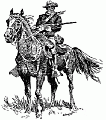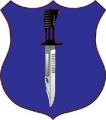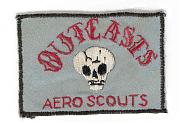I'm no medic, fire support specialist, logistician, engineer (anymore), or mechanic, but I need some skill sets in those areas to be successful in my AO as well.
I'm not saying the Soldier shouldn't at least familiarize themselves with other skills sets that will make them better (we used to call this cross training), but they better be damned good with what they are supposed to do first.
ODB makes a great point, whether you're an SF ODA, a scout platoon, or a professional football team. Successful teams do the routine things routinely the correct way.
Basics and fundamentals are the core of what we do. Actions on contact don't change in a COIN environment from a tank-on-tank environment; they're the same four steps each time
1. Deploy and Report
2. Evaluate and develop the situation
3. Choose a COA
4. Execute the selected COA
I would submit the same basic methodology would work in a non-kinetic bilateral engagement at the shiek or local leader level.
Same goes for the IPB process when determining the areas IEDs will most likely be placed.
In terms of diplomacy, diplomatic status, or whatever the hell else we want to call it, I see it this way.
According to Webster's:
di·plo·ma·cy
Pronunciation: \də-ˈplō-mə-sē\
Function: noun
Date: 1796
1 : the art and practice of conducting negotiations between nations
2 : skill in handling affairs without arousing hostility : tact
I think what we're looking at is the second definition. The first, though I've seen it talked about above, doesn't really apply. Just because I make an agreement with the local shiek doesn't mean I've entered into the diplomatic stage of my career. Substituting "nation" with any other host of words doesn't foot the bill either and we need to be careful on what terms we sub in for "nation." Eventually we'll come all the way around and negotiating a good used car deal will include us in a host of diplomats.
I think what we're really talking about is the common sense approach to dealing with other people. The Golden Rule, as it were. What are the fundamental laws of human behavior and nature that we must follow keeping in mind the cultural differences between societies? What does the Law of Realistic Expectation say how the interaction, over a long period of time, will materialize. How do you deal logically with others (logical is a relative term as well, depending on the society) and what is the understanding of the culture and societal dos and don'ts? Given what I say to the local leader or what I do on patrol could and will influence the second and third order effects of how the locals deal with me in both the near and far term, I think this is what we really mean by "diplomacy."













 "A Sherman can give you a very nice... edge."- Oddball,
"A Sherman can give you a very nice... edge."- Oddball, 



Bookmarks